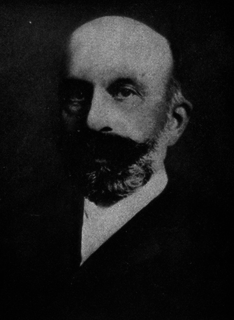A Quote by Rodney Clapp
It was only in the late nineteenth century and then the twentieth century, with the maturation of consumer capitalism, that a shift was made toward the cultivation of unbounded desire. We must appreciate this to realize that late modern consumption, consumption as we now know it, is not fundamentally about materialism or the consumption of physical goods. Affluence and consumer-oriented capitalism have moved us well beyond the undeniable efficiencies and benefits of refrigeration and indoor plumbing.
Quote Topics
About
Affluence
Appreciate
Benefits
Beyond
Capitalism
Century
Consumer
Consumption
Cultivation
Desire
Fundamentally
Goods
Indoor
Indoor Plumbing
Know
Late
Made
Materialism
Modern
Moved
Must
Nineteenth Century
Now
Only
Oriented
Physical
Plumbing
Realize
Shift
Then
Toward
Twentieth
Twentieth Century
Undeniable
Us
Well
Related Quotes
What worries some people about consumption (and I confess at the outset to be one of these ambivalent creatures, fat but troubled in paradise) is that the affluent, technologically advanced West seems more and more focused not on consuming to live but living to consume. The problem with consumption, and the consumer capitalism that has pushed it to feverish historical extremes, is that it has become so all-consuming.
The illusion that consumption - and its correlative, income - is desirable probably stems from too great preoccupation with what Knight calls "one-use goods," such as food and fuel, where the utilization and consumption of the good are tightly bound together in a single act or event. ... any economy in the consumption of fuel that enables us to maintain warmth or to generate power with lessened consumption again leaves us better off. ... there is no great value in consumption itself.
Consumption is the sole end and purpose of all production; and the interest of the producer ought to be attended to only so far as it may be necessary for promoting that of the consumer. The maxim is so perfectly self-evident that it would be absurd to attempt to prove it. But in the mercantile system the interest of the consumer is almost constantly sacrificed to that of the producer; and it seems to consider production, and not consumption, as the ultimate end and object of all industry and commerce.
Developed and benefited from the unsustainable patterns of production and consumption which have produced our present dilemma. It is clear that current lifestyles and consumption patterns of the affluent middle class-involving high meat intake, consumption of large amounts of frozen and convenience foods, use of fossil fuels, appliances, home and work-place air-conditioning, and suburban housing-are not sustainable. A shift is necessary toward lifestyles less geared to environmentally damaging consumption patterns.
Until the 19th century, the term 'to consume' was used mainly in its negative connotations of 'destruction' and 'waste'. Tuberculosis was known as 'consumption', that is, a wasting disease. Then economists came up with a bizarre theory, which has become widely accepted, according to which the basis of a sound economy is a continual increase in the consumption (that is, waste) of goods
Given that the nineteenth century was the century of Socialism, of Liberalism, and of Democracy, it does not necessarily follow that the twentieth century must also be a century of Socialism, Liberalism and Democracy: political doctrines pass, but humanity remains, and it may rather be expected that this will be a century of authority ... a century of Fascism. For if the nineteenth century was a century of individualism it may be expected that this will be the century of collectivism and hence the century of the State.
We've wanted to produce more in the 19th century and the 20th century in order to give man the possibility for more dignified human life; but actually what has happened is that production and consumption have become means - have ceased to be means and have become ends, and we are production crazy and consumption crazy.


































